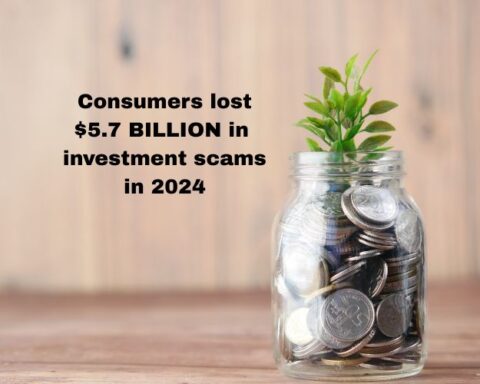Common Travel Scams, FTC Consumer Advice
You may get a call, a text message, or a flyer in the mail. Or maybe you’ll see an online ad promising free or low-cost vacations. Scammers and dishonest companies are often behind these offers. You may end up paying hidden fees — or worse: after you pay, you might find out it’s all a scam. Read on to learn how to avoid scams when you travel.
Common Travel Scams
“Free” vacations
You’ve probably seen ads online for “free” vacations. Or you may have gotten emails, calls, or text messages saying you’ve won a vacation, even though you never entered a contest. If you respond to these offers, you’ll quickly learn that you have to pay some fees and taxes first — so your “free” vacation isn’t really free. A legitimate company won’t ask you to pay for a free prize.
Robocalls about vacation deals
You might get robocalls offering you vacation deals at a discounted price. Robocalls from companies trying to sell you something are illegal unless the companies got written permission, directly from you, to call you that way. If someone is already breaking the law by robocalling you without permission, there’s a good chance it’s a scam. At the very least, it’s a company you don’t want to do business with.
International travel document scams
You might see sites that claim to be able to help you get an international travel visa, passport, or other documents. These sites are just copycats of the U.S. Department of State website. But these sites charge you high fees, including fees for services that are free on the U.S. Department of State’s website.
International driving permit scams
An international driving permit (IDP) translates your government-issued driver’s license into 10 languages. Scammers create websites to sell fake IDPs, or try to sell them to you in person or some other way. If you buy a fake IDP, you’ll be paying for a worthless document. But, even worse, you also could face legal problems or travel delays if you’re detained for using it to drive in a foreign country. Only the U.S. Department of State, the American Automobile Association (AAA), and the American Automobile Touring Alliance (AATA) are authorized to issue IDPs.
Vacation home scams
These days, it’s easy to connect directly with property owners who advertise their vacation homes online. But scammers are also trying to get your rental booking. For example, they hijack real rental listings and advertise them as their own, so when you show up for your vacation, you find out that other people are also booked for the same property. You have no place to stay, and your money is gone. Other scammers don’t bother with real rentals — they make up listings for places that aren’t really for rent or don’t exist.
Charter flight scams
You may get a flyer in the mail, see an ad, or hear from someone in your community about an offer to travel by private plane to some place you’d like to go. The offer may even include lodging and sightseeing tours. You think you’re signing up for a charter flight and vacation package, but after you pay, you find out it’s all a scam. The U.S. Department of Transportation’s (DOT) Special Authorities Division maintains a list of approved public charter flights. If the charter filing is not approved by DOT before the package is sold, you’re probably dealing with a dishonest charter operator.
Signs of a Scam
- Scammers say it’s a “free” vacation that you have to pay for. They often try to get your attention by saying you won something, but then making you pay to get it. If you have to pay, it’s not really free — and all those fees and taxes can add up to hundreds of dollars.
- Scammers don’t give specific details about the travel offer. The offer says you’ll stay at a “five-star” resort or go on a “luxury” cruise ship. But if the organizer can’t or won’t give you more specific details, like the address of the hotel or the cruise company’s name, walk away.
- Scammers say the only way to pay for your vacation rental is by wire transfer, gift card, or cryptocurrency. This is how they ask you to pay because once they’ve collected the money, it’s almost impossible to get it back. That’s a scam, every time.
- Scammers pressure you to make a quick decision about a vacation package or rental. If someone says you have to decide whether to buy a travel package or rent a vacation property right away, don’t do it. Scammers want to rush you. So move on and find another option.
- Scammers advertise premium vacation properties for super cheap prices. Is the rent a lot less than comparable rentals? Below-market rent can be a sign of a scam.
Three Ways to Avoid Travel Scams
- Don’t sign or pay until you know the terms of the deal. Get a copy of the cancellation and refund policies before you pay. If you can’t get those details, walk away. Say “no thanks” to anyone who tries to rush you without giving you time to consider the offer.
- Do some research. Look up travel companies, hotels, rentals, and agents with the words “scam,” “review,” or “complaint.” See what others say about them before you commit. Also, check that the address of the property really exists. If the property is located in a resort, call the front desk and confirm their location and other details on the contract.
- Don’t pay with wire transfers, gift cards, or cryptocurrency. Dishonest travel package promoters might tell you to pay in one of these ways, but that’s a sure sign of a scam. If you pay with wire transfers, gifts cards, or cryptocurrency and there’s a problem with what you paid for, you’ll lose your money, and there’s likely no way to track it or get it back.
Report Travel Scams
If you think you may have been targeted by a travel scam, report it to







